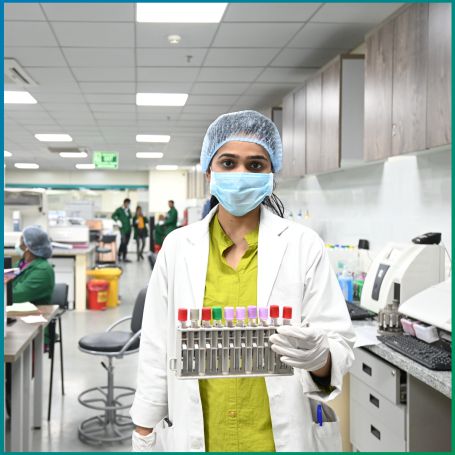
A fungal culture test is an essential diagnostic tool used to detect fungal infections in the body.

A fungal culture test is a laboratory procedure used to detect and identify fungal infections. Fungi, like bacteria and viruses, can invade various parts of the body, leading to infections that range from mild to severe. These infections may affect the skin, lungs, blood, or other internal organs. In this test, a sample is taken from the suspected infected area, such as blood, tissue, or other fluids. The sample is then cultured in a lab to grow and identify the specific fungus causing the infection. One of the most commonly recommended methods is the fungal culture and sensitivity test, which not only identifies the fungus but also determines the best antifungal treatment for it.
A fungal culture test is done when Persistent infections do not respond to regular treatments. There are symptoms such as recurring fevers, chronic cough, skin lesions, or unexplained illness.The doctor suspects a fungal infection due to a compromised immune system, as seen in patients with diabetes, cancer, or HIV/AIDS. This test is crucial for the early detection and appropriate treatment of fungal infections, as untreated cases can lead to severe complications.
Individuals who are experiencing symptoms of a fungal infection or those with the following risk factors should consider getting a fungal culture and sensitivity test People with weakened immune systems, such as cancer patients, individuals with HIV, or those on immunosuppressive medications. Individuals who have had prolonged exposure to environments where fungal infections are common, such as moldy areas. Those experiencing chronic skin infections, respiratory problems, or unexplained symptoms not responsive to standard treatments. People with persistent infections despite regular antibiotics or antiviral treatments.
You should choose the right diagnostic lab centre for your FUNGAL CULTURE (AC Tap) test because we are committed to providing high-quality diagnostic care in a clean and hygienic environment. Our center is equipped with advanced technology to ensure accurate and reliable test results, which are crucial for assessing this test. Diagnopein’s experienced staff is dedicated to handling tests with precision and care, offering you both expertise and comfort. We also offer affordable pricing, making essential health diagnostics accessible without compromising quality. For timely, professional, and affordable cardiac testing, Diagnopein is your trusted partner for your healthcare.
1. Culture Method
2. Sample
3. Colony Count
4. Organism(s) Isolated
5. Culture Report: Culture yields growth of
6. Culture isolated after 7 days :
7. Culture isolated after 14 days:
8. Culture isolated after 21 days:
9. Ampicillin
10. Amikacin
11. Amoxicillin clavulanate
12. cefoperazon+sulbactam
13. Cefuroxime
14. Cefepime
15. Cefotaxime
16. Ciprofloxacin
17. Ertapenem
18. Gentamicin
19. Imipenem
20. Meropenem
21. Norfloxacin
22. Nitrofurantoin
23. Piperacillin-tazobactam
24. Trimethoprim-Sulfamethoxazole (Cotrimoxazole)
The test is usually painless. If a blood sample or tissue biopsy is required, you may feel mild discomfort similar to any other blood test or minor procedure.
The fungal culture test is used to diagnose fungal infections by identifying the specific fungi causing the infection. It helps doctors determine the most effective treatment.
The results of a fungal culture test can take anywhere from a few days to several weeks, depending on the type of fungus being cultured.
The procedure involves taking a sample from the suspected infection site, such as blood, tissue, or other body fluids. The sample is then sent to the lab for analysis.